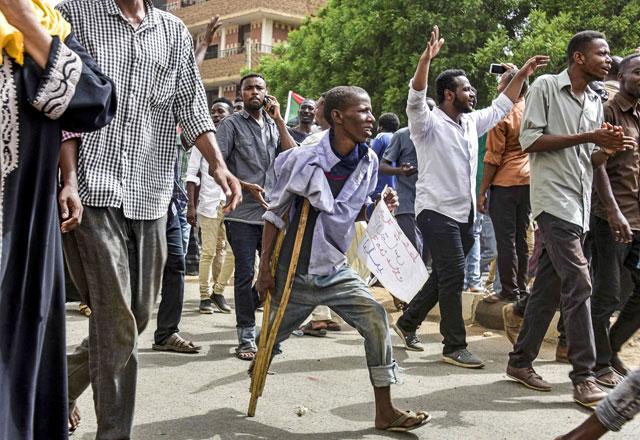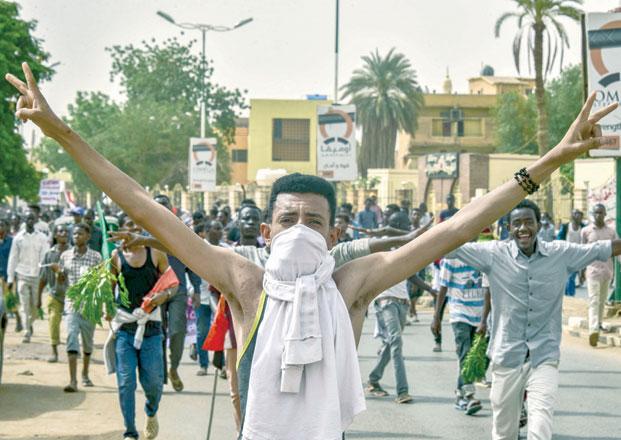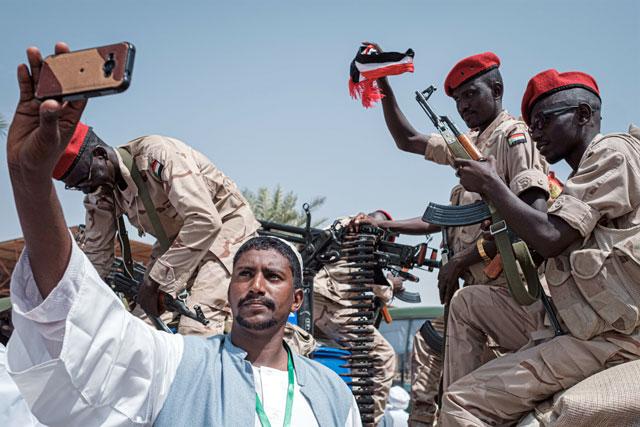You are here
Sudan's Mahdi rejects call for mass demos on June 30
By AFP - Jun 27,2019 - Last updated at Jun 27,2019
KHARTOUM — Sudan's veteran opposition leader Sadiq Al Mahdi rejected on Wednesday a call for nationwide mass demonstrations against the country's ruling generals on June 30.
The remarks by the head of National Umma Party come as tension between the generals and leaders from the umbrella protest movement, the Alliance for Freedom and Change, remain high after a deadly crackdown.
The June 30 rallies called by the alliance coincide with the 30th anniversary of the Islamist-backed coup that had brought now ousted leader Omar Bashir to power after toppling the then elected government of Mahdi.
"Our opinion is to avoid escalatory measures from either side," Mahdi, who is part of the protest movement, said at a press conference at his party headquarters in Omdurman, the twin city of Khartoum across the Nile.
Mahdi said any escalation prior to receiving the ruling military council's response to a power transfer plan proposed by Ethiopia would be "premature".
Ethiopia is mediating talks between the generals and protest leaders since previous negotiations collapsed in the wake of the June 3 crackdown on a protest sit-in outside the army headquarters in the capital.
Ethiopia’s proposal calls for forming a new 15-member civilian-majority governing body, which the protest leaders have accepted but the military council has so far dismissed.
On June 3, armed men in military fatigues stormed the protest camp, shooting and beating demonstrators who had camped there since April 6.
More than 100 people were killed on that day, according to medics linked to the protest movement. Officials say 61 people died.
The generals deny they ordered the dispersal, insisting they had authorised only a limited operation to clear a nearby area of drug dealers.
Ethiopia and the African Union have since stepped up diplomatic efforts to resolve the crisis in Sudan.
Thousands of protesters had gathered for weeks outside the army complex since April 6, initially to demand the army’s support in toppling Bashir.
The army ousted the longtime ruler on April 11 on the back of protests, but since then the generals have resisted a transfer of power to a civilian administration as demanded by demonstrators.
Protest leaders and the military council are at loggerheads on the composition of the new governing body and on who should lead it — a civilian or a soldier.
Related Articles
KHARTOUM — Sudan's protest leaders Wednesday agreed to hold direct talks with the country's ruling generals after African Union and Ethiopia
KHARTOUM — Sudan's protest leaders and ruling generals traded blame Monday for deadly new violence as three blood-stained bodies were found
KHARTOUM — Sudan's army ruler Wednesday called on protest leaders to resume talks on the transfer of power without any conditions, as tensio














